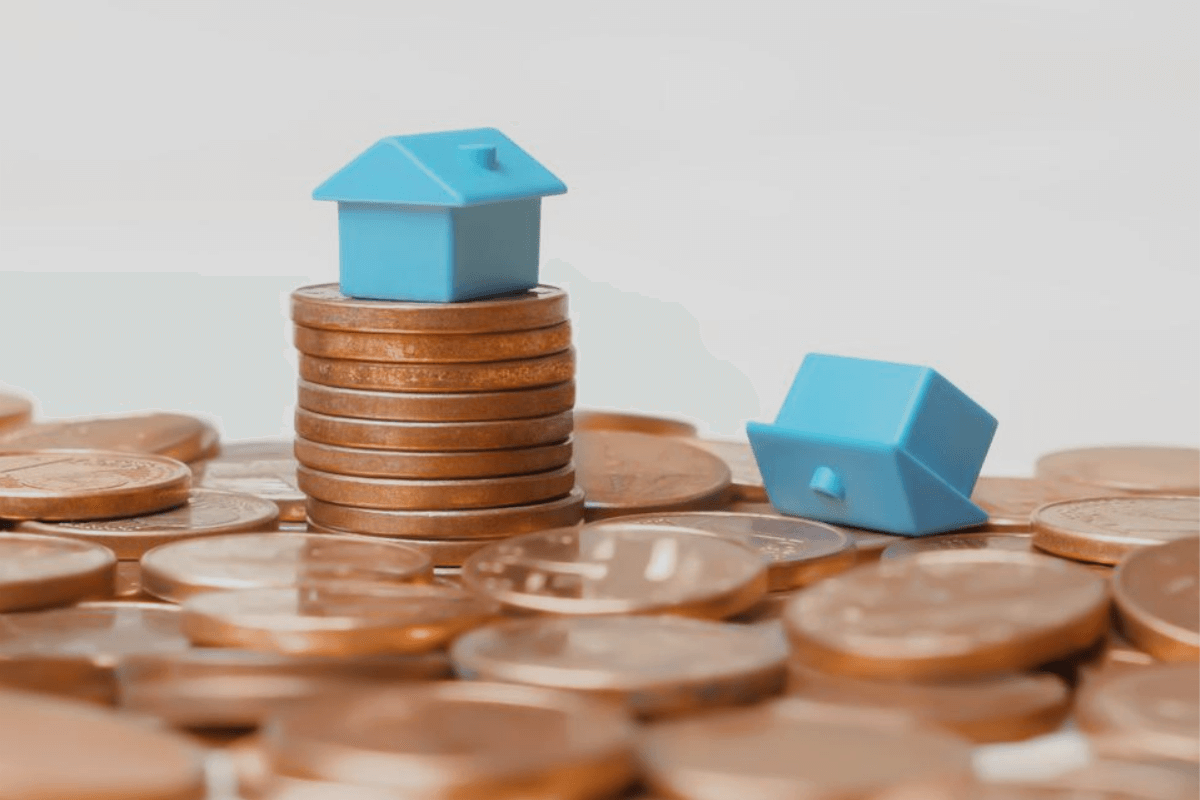Is A Housing Market Crash Coming?

To answer the question, “will the housing market crash” we need to ascertain whether we are in a bubble. This occurs when there is a sharp rise in the price of an asset that is unsupported by the underlying fundamentals.
Are we in a housing price bubble? Well, somewhat. Home prices remain grossly inflated, but the consumer/borrower and the overall economy remain pretty strong post-pandemic.
This Is Not the Financial Crisis of 2008
We do not have the makings of the Financial Crisis of 2007-2008, where the mass securitization of bad loans to noncredit-worthy borrowers tanked the entire economy. During the housing crisis, borrowers lived in homes they could not afford if they dealt with rising interest rates. The real estate market, including commercial and residential real estate, was stretched thin.
People with limited assets and minimal savings were securing mortgages they had no business getting should the economy sour. After they got their mortgages and moved into their McMansions, they began using their homes like piggy banks, borrowing against them to fund their bourgeois lifestyle. There are more responsible ways for those struggling to save to buy a house with no money.
When values depressed, borrowers found themselves underwater, holding mortgages worth more than the home’s value—shame on the lenders, the underwriters, the real estate agents, and the would-be homeowners. The housing crash was avoidable with its stampede of warning signs.
The real estate backdrop today is different.
What I am seeing is the result of several things:
1. Supply and demand imbalances are driving up home prices in various markets.
Builders have ramped up construction, but the number of new homes is insufficient to meet demand. For example, retirees’ exodus from the Northeast to places like Florida is staggering. Every neighbor I have is a retiree and a transplant.
2. Borrowers are relatively flush with cash.
There are several reasons for this, including Uncle Sam’s pandemic stimulus checks, improved household savings rate, increased liquid retirement assets, wage increases, etc. People are also using the appreciation in their existing homes, taking advantage of the seller’s market, and either upsizing or relocating with the proceeds.
3. Historically low borrowing rates.
There was never a better time to secure a mortgage for your dream home. Twenty-year and thirty-year fixed-rate loans were at historic lows. I say “was” because rates are rising courtesy of a hawkish Fed targeting high inflation numbers. Easy money will quickly become a little less “easy” when the Fed tightens.
In the late 70s, my parents bought their first home and secured a mortgage for a little less than 10%. My dad felt good about that. Mom and dad financed our childhood home right before we saw some of the highest rates in history. They paid less than $40k for our home, which has since appreciated more than 20x in 40 years. When I called mom to inquire, she said, “yes, and my parents bought their home on Long Island, New York, for $7k.” Check out the 30-year fixed-rate mortgage averages below.

Source: fred.stlouisfed.org *The Gray areas are indicative of a recession.
If you didn’t refinance your home, car, student loan, or other elements of your loan portfolio, you are the last man standing. You are the last one. Maybe go and take care of that now.
4. Broken supply chains have driven up materials and labor costs.
Inflation nation. Higher labor, lumber, and other material costs have made building homes at lower price points challenging.
5. The housing moratorium.
Or should I say the foreclosure moratorium and forbearance on payments on government-backed mortgages? That prevented distressed sales of foreclosed homes, which steeply discount home prices. Realistically, there were few foreclosures during the pandemic.
6. The work from anywhere craze has further powered demand.
We have seen big cities like NY, Boston, Chicago, LA, DC, etc., shed their local domestic labor force during the pandemic. Millions of apartment dwellers relocated to the suburbs, exurbs, and smaller cities. For the first time, these remote workers were driving up housing markets where existing prices looked like bargains compared to what they were paying in the city.
Do all bubbles pop?
Some do, and some don’t. The ones that don’t tend to deflate gradually. That is what we will see in the housing market – broadly speaking – a gradual deflation of home price value.
In the coming 24 months, there will also be pockets of stability and severe value loss in terms of home sales. I predict that we will not see a complete collapse of the housing market. Prices should move sideways and allow for incomes and the cost of construction inputs to catch up.
When home prices rise this fast, they become disconnected from the purchasing power of would-be buyers. Some first-time homebuyers have even begun looking at alternatives. Prefab and modular homes have become increasingly popular among millennials looking for a cheaper buying experience of living off-the-grid.
For anyone paying attention, housing prices have risen more quickly than income. That is mainly due to the low-interest rates offered to home buyers. Nationwide, home prices are overvalued by as much as 15 percent. In the South and West, I’d say they are overvalued by more than 20 percent.
Home Prices – Boom Towns Are Going to Bust
Housing prices remain red hot. I am not referring just to upper-class neighborhoods in big cities or resort towns. The entire real estate industry is on fire. Markets are desirable in the suburbs, exurbs, cities, and rural areas.
Prices were rising well before the pandemic but have been on a tear as of late. Median home prices are more than double a decade ago – roughly $350,000. This level of home price appreciation doesn’t seem sustainable. Home prices rose by 18.8% annually in December 2021. It is harder today than ever before to find an affordable home. Mortgage rates are creeping up. Rates are nearly 75 basis points higher (0.75%) today than they were a year ago.
My partner bought a new home for a base price of $450k and put roughly $100k of upgrades into the house in 2021. Mind you, the base price of this same home was $300k in 2019. In the past 12 months, the home has risen to $680k. Our neighbors down the block just sold their home and made a tidy $300k profit in the last two years with only 20% down at purchase.
Any fool can see this sort of growth doesn’t add up. A housing market correction must be imminent. Fantastic for my neighbors who sold, but for the buyers who bought the house? Maybe people forgot what happened to the market in Miami about a decade ago. Many real estate investors who got in at the height of the real estate bubble still haven’t made their money back.
Investing now may prove an awful thing if you intend to sell in the near run. I generally run an appreciation factor equivalent to GDP or slightly below. Say 2 to 3% to be conservative. A quick Future Value analysis shows that $550k goes to roughly $567k in 18 months at a 2% appreciation for the math wizards out there.
The Most Overvalued Housing Markets
Many of these names are still on the list of the fastest-growing markets. That means that their prices will likely stabilize in the future. When will that happen? No one knows for sure, but if we have reached a peak in the current housing cycle, this will be sooner than later.
If you were wondering, Boise, Idaho, remains the nation’s most overvalued market. Prices have been up more than 75% since November 2021. That is considered a rapid price increase. Some homebuyers are looking at purchasing smaller units.
Sellers Need to Brace Themselves
They say that life is all about timing.
In the next 24 months, sellers will need to brace themselves for a challenging time if they are attempting to get the highest value for their homes. Housing markets are beginning to settle in western markets. Data suggest that places like San Francisco and Los Angeles show signs of a pricing crown. That is because the most extensive levels of separation between actual and projected home prices have occurred to this point in the West.
This stands in contrast to most Eastern markets where home prices continue to rise. Buyers pay steep premiums in Atlanta, Georgia, and Charlotte, North Carolina. According to Zillow, the situation is getting worse instead of inventory levels beginning to normalize this year. And a lack of inventory means buyers will bid up prices well into the Spring of 2022. According to Zillow, in January 2021, the number of homes for sale was 26% below the level hit in January 2020. In January 2022, that number was 42% below January 2020.
Not everyone agrees with Zillow, however. CoreLogic sees home prices climbing 3.5%, and Fannie Mae predicts the home price index to grow by 7.6% this year. I find myself in the latter camp when compared to Zillow. Many buyers will be priced entirely out of the market as rates rise. The cooling effect will ice out many buyers currently waiting on the sidelines.
What About Buyers?
On the other side of the coin, buyers should be ready for more depressed home prices. However, they should also be prepared to see much higher mortgage rates than we are seeing today. Maybe 100bps (1%) to 200bps (2%), depending on how aggressive the Fed, aka the Federal Reserve Bank, is when they raise interest rates.
Is the Market Speculative with Investors?
It does not appear that house flips are a severe concern. House flips are an arms-length sale within one year of the previous sale. We tend to see today’s investors purchasing older homes in less bubble-prone markets. These markets are primarily in the Northeast and Midwest. Flippers buy the houses, renovate them and then move to sell them quickly.
Today, housing investors are primarily composed of well-established companies focused on longer-term real estate investment horizons, compared to the bubble of 2007. You’ve got many investors buying homes, renovating them, and renting them to single families.
Another critical difference between today and the meltdown we saw during the financial crisis is that borrowers use traditional products, like a vanilla 30year fixed mortgage. Underwriters are more careful to review the borrower’s credit history, income, and appraised home value. We are not seeing adjustable-rate loans made to borrowers with low credit scores. The era of the subprime two-year adjustable-rate loan has long since passed.
So, Will the Housing Market Crash?
It seems pretty unlikely that we are in the same housing bubble seen in 2007-2008. Although home values in the United States continue to beat the market forecast, home sales remain elevated.
The addition of better underwriting for those interested in buying a home helps the fact that most worthy buyers live within their means. If you are looking for a house and looking for an ok deal, maybe avoid the Bay Area.
This article was produced and syndicated by Wealth of Geeks.






